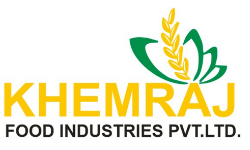Quality Control
- Home
- Quality Control
Ensuring the elevated and consistent excellence of our flour stands as a cornerstone in our operational philosophy. Integral to our manufacturing process is an indispensable element: the meticulous oversight provided by our cutting-edge Quality Control laboratories. At the helm of this operation is a team of seasoned food chemists and accomplished bakers, united in their commitment to guarantee that our end product unfailingly attains the pinnacle of quality.
The meticulous nature of our quality control measures extends beyond mere scrutiny; it involves a comprehensive analysis to affirm not only the superior attributes of the flour but also to ascertain the absence of any deleterious elements such as toxins, pesticides, or harmful microorganisms within the grain. This is executed with precision through the utilization of state-of-the-art equipment at our disposal, complemented by collaborative efforts with some of the most esteemed NABL-accredited laboratories specializing in these intricate tests.
In essence, our dedication to quality control is not just a procedural formality; it is an unwavering commitment to deliver a flour product that transcends expectations, fortified by a synthesis of advanced technology, proficient personnel, and strategic collaborations.
The Quality Control Procedure
1. Grain Procurement and Initial Inspection:
- Source Selection: Procure wheat from reputed local suppliers in Madhya Pradesh (MP) and surrounding regions.
- Initial Inspection: Conduct a thorough visual inspection at the point of delivery for signs of contamination, damage, or foreign materials.
2. Sampling and Laboratory Analysis:
- Sampling Protocol: Implement a systematic sampling procedure at delivery points for representative samples.
- Laboratory Analysis: Subject samples to comprehensive laboratory tests, including moisture content, protein levels, and other key parameters to evaluate wheat quality.
3. Approval for Grain Acceptance:
- Quality Verification: Accept wheat shipments only after laboratory analyses confirm compliance with established quality standards.
- Document Control: Maintain detailed records of laboratory reports and approvals for traceability.
4. Continuous Monitoring During Milling:
- In-Process Sampling: Introduce sampling points at various milling stages to monitor quality consistently.
- Real-Time Analysis: Utilize real-time analytical tools to assess key quality indicators during milling operations.
5. Segregation and Quality-Based Storage:
- Segregation by Quality: Store wheat based on quality grades, ensuring separation to preserve integrity.
- Quality-Controlled Storage: Implement environmental controls (temperature, humidity) to prevent quality degradation during storage.
6. Sampling at Production Stages:
- Sampling at Each Stage: Regularly sample during different production phases, from grinding to final flour production.
- Quality Control Approval: Progress to the next stage only upon approval from the Khemraj Food Industries quality control team at each step.
7. Comprehensive Flour Testing:
- Post-Milling Analysis: After milling, subject the flour to thorough testing, including particle size, ash content, and gluten quality.
- Baking Tests: Conduct baking tests in the experimental bakery to evaluate the flour’s performance in real-world applications.
8. Final Quality Verification:
- Quality Control Department Approval: The flour undergoes a final assessment by the Khemraj Food Industries quality control department before receiving approval for packaging.
- Documented Approval: Document the final quality control approval for future reference.
9. Packaging and Distribution:
- Quality-Controlled Packaging: Ensure packaging materials meet hygiene standards and prevent contamination.
- Final Check before Distribution: Conduct a final quality check before dispatching products to ensure consistency.
10. Regular Quality Audits and Improvement:
- Periodic Audits: Conduct regular internal audits of the quality control procedures to identify areas for improvement.
- Continuous Improvement: Implement necessary changes based on audit findings and feedback, striving for ongoing enhancement of quality control processes.
At Khemraj Food Industries, this meticulous quality control procedure ensures that every phase, from wheat collection to packaging, aligns with our commitment to delivering premium wheat flour products consistently.
Research & Development
In response to the dynamic evolution of consumption patterns and the escalating demands of bakers, our dedicated Research and Development (R&D) department stands as a proactive force. Comprising seasoned food technologists working collaboratively with technical bakers, this department is committed to a continuous enhancement of our existing products and the innovative development of new flours.
Within this dynamic R&D setting, our skilled team of food technologists collaborates seamlessly with technical bakers, engaging in ongoing experiments to refine existing flour recipes and create novel formulations. The primary objective is to synergize grains with diverse qualities, perpetually striving to attain optimal outcomes that consistently exceed the expectations of our customers—the bakers.
This dynamic collaboration with our R&D department is instrumental in guiding our selection of the most suitable grains. Through a meticulous process, we ascertain the correct grain blends that not only align with our production processes but also guarantee the consistent delivery of high-quality flour. The overarching goal is to meet and exceed the ever-evolving requirements of our valued customers in the baking industry.







